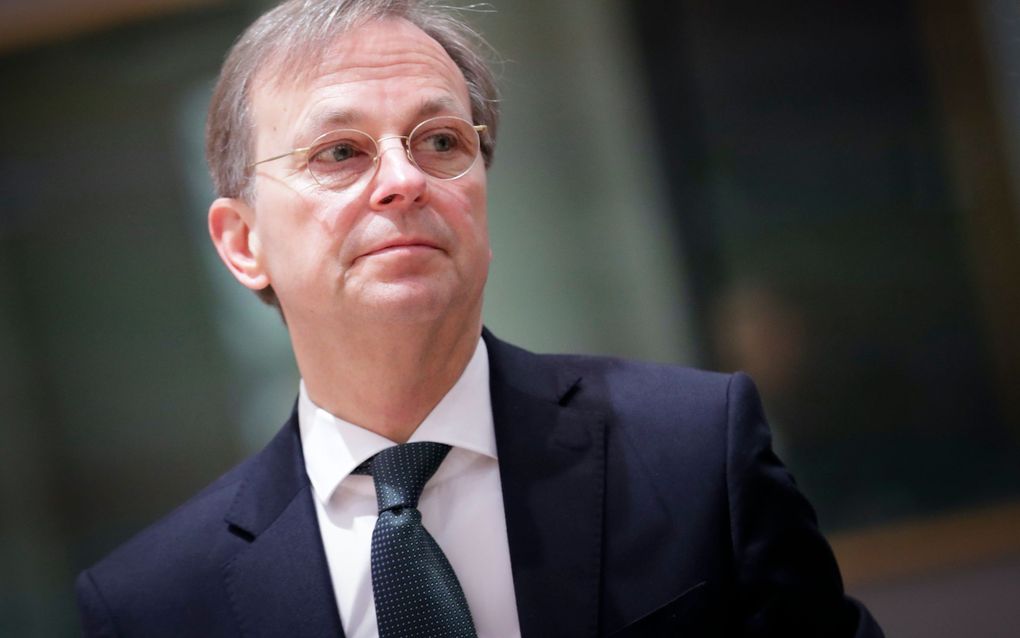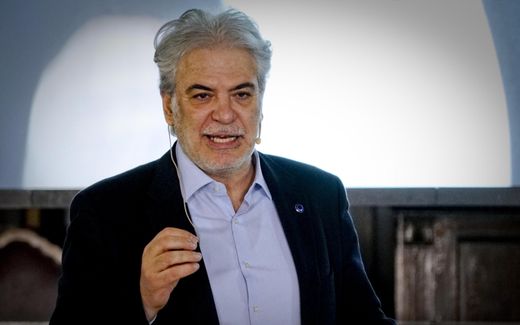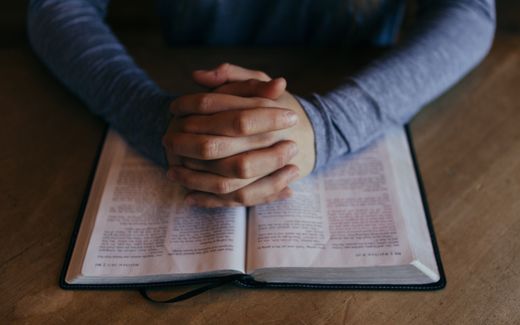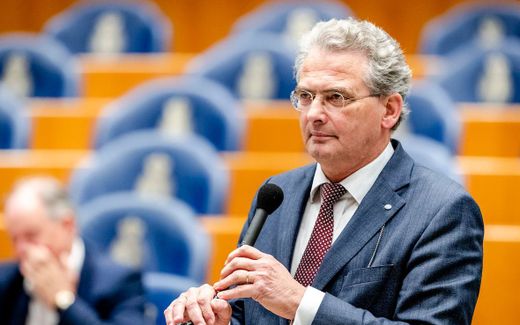Religious freedom core of human rights, says MP Thomas Rachel
28-12-2021
Central Europe
Johannes Schwarz, PRO

Thomas Rachel. Photo EPA, Oliver Hoslet
Central Europe
Thomas Rachel is the new ecclesiastical political spokesman for the CDU/CSU in the German Bundestag. In an interview with PRO, he makes clear that he wants to stand up in particular for persecuted Christians and other religious minorities.
PRO: A few days ago, you were elected spokesman on ecclesiastical and religious policy for the fraction. Why are you taking over the office from your colleague Hermann Gröhe?
Thomas Rachel: “It is a great honour for me to take on this task. For the first time, the spokesmen were elected. Earlier, representatives were determined by the top of the parliamentary group. I received 93 percent of the votes, in other words, widespread support. I want to make Christian values visible in politics and to find answers to the difficult questions of this time, based on Christian values. And we all feel that society is changing significantly. Our task in the pluralising and secularising of society and the growing diversity, is to make the reconciling basis of the Christian image of man visible and let its effectiveness radiate.”
What can that look like?
“Religion is essential to people, especially in a time of great upheaval. At the same time, there exists a great call and search for orientation, for stability. It is a significant task for the Christian churches to provide answers to such issues. The religious and ideological diversity is increasing.
At the same time, fundamentalism and radical ideologies are challenging for us. We have to take those challenges very seriously. I advocate a tolerant and peaceful coexistence of religious convictions, especially of the three major world religions.
As a believing Christian, it is important that we live out Christian values in society. That means we should give a clear no to any form of discrimination, agitation or antisemitism.”
Which topics do you want to address in the new legislative period?
“My focus will be on the persecution of Christians and other minorities worldwide. We cannot look the other way when freedom of religion and belief is restricted for three-quarters of people worldwide. In North Korea, thousands of Christians are subjected to forced labour in penal camps.
Also, thousands of Yazidi women and girls have been enslaved and raped by the Islamic State. Religious freedom means to be allowed to practice religions, to be allowed to change a religion or to have no religious conviction at all. It is one of the inalienable human rights. It may even be at the core of human rights in general – a great responsibility.”
You are addressing religious freedom. After some hesitation, the new government also decided to refill the office of the Commissioner for Religious Freedom. To what extent do you need more efforts?
“As CDU/CSU parliamentary group, we are delighted that, with our application to the German Bundestag, we have given an important impetus to maintain and strengthen the beneficial task of the Federal Government Commissioner for Worldwide Religious Freedom. We can only welcome the fact that the liberal coalition would like to continue this task.
In addition, of course, everyone can do a lot themselves, such as donating money to people who are persecuted because of their beliefs. I do this myself too, and I appreciate it – people can be helped in practical ways.”
Euthanasia and the protection of life are controversial issues. How do you want to deal with such questions?
“I am concerned because the liberal government clearly questions the tried and tested laws and value decisions. One example is the regulation of abortion. Under the narrowing concept of “reproductive self-determination”, the coalition is undertaking a complete reassessment. We are concerned that the long-standing social compromise on this will be destroyed.
Our fraction has a close relationship with Christian churches. And that is very important to us because the Christian value orientation also positively affects society.”
A few weeks ago, you were still working as the Secretary of State in the government. Now you are placed in the opposition. How will your job change?
“It was a great pleasure to me that the Federal Chancellor appointed me as the Parliamentary Secretary of State in the Federal Ministry of Education and Research in all of her four federal governments. Now, after the general election, I will be a member of the opposition with a happy heart and the same commitment. We will address our topics –I would like to focus on areas such as marriage, family, religious freedom and development cooperation in particular– and strengthen them.”
All parliamentary groups in the German Bundestag provide a commissioner for churches and religious communities. Will you exchange ideas with one another?
“Certainly. In any case, I am looking forward to having constructive discussions and togetherness.”
Politics cannot avoid one topic: Covid-19. Since the beginning of the crisis, Christians and many other religious communities have been fighting for a good way to protect both religious freedom and public health. What would you advise believers?
“The churches act very responsibly and go different ways, depending on the local situation. We should promote vaccination. We will only be able to solve the problem with a high vaccination rate. We should all take advantage of this medical opportunity and offer. It is important to me that tragic situations no longer arise where people die lonely in intensive care units, such as happened in the wake of the pandemic. We learned that family support in the most difficult situations, pastoral encouragement and support for people with serious illnesses or in the last phase of their lives must be guaranteed.”
You are the chairman of the Protestant Working Group of the CDU/CSU and a member of the Council of the Protestant EKD Church of Germany. What does faith mean to you?
“It gives me strength and a home. Through God’s promise, it helps me understand that I do not have to solve all problems myself. That is why the preamble to the Constitution is so important to me: “Responsible to God and the people.” Ultimately, we have to show ourselves responsible to a Creator, and at the same time, we are accompanied by Him.
I was surprised that half of the new government members did not include the reference to God in the formula of the oath. That shows a part of the distance from fundamental religious convictions. The reference to God helps to become humble and gives strength. It shows that we do not hold everything in our own hands.”
Do you have a favourite Bible verse?
“Every verse delights me. Every daily meditation makes me curious again. In this respect, I believe that we can all find a new psalm or a new daily motto in the Bible that we like.”
What is your hope for the world, especially regarding pandemics, climate change and hatred?
“That is a good question. I would say, citing Psalm 23 in my own words: “The Lord is my Shepherd. I will lack nothing.” Despite all challenges and upheavals, I simply walk into the future with a certain trust in God. Faith gives me strength, company and hope.”
This interview is a translation of an article that was published by the German media magazine PRO
Related Articles





